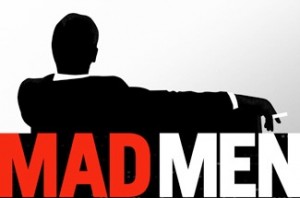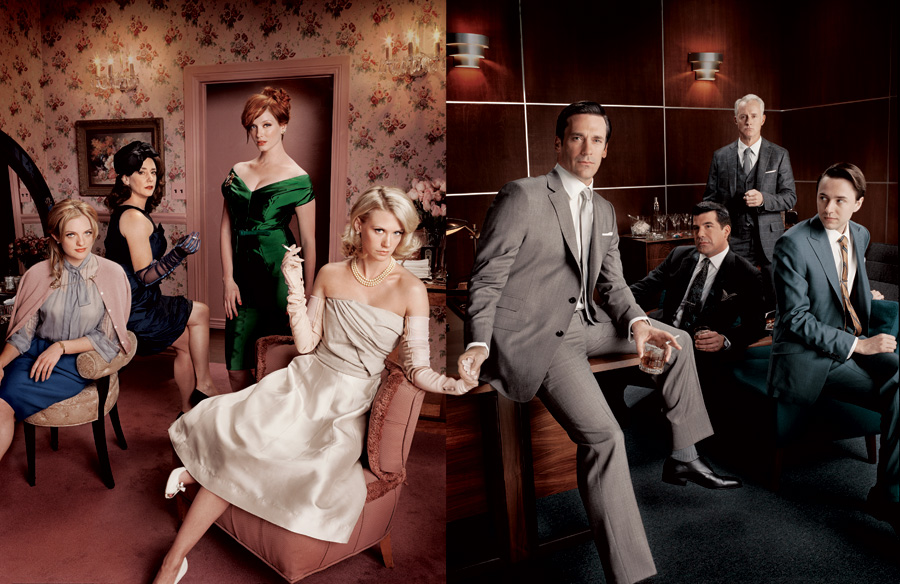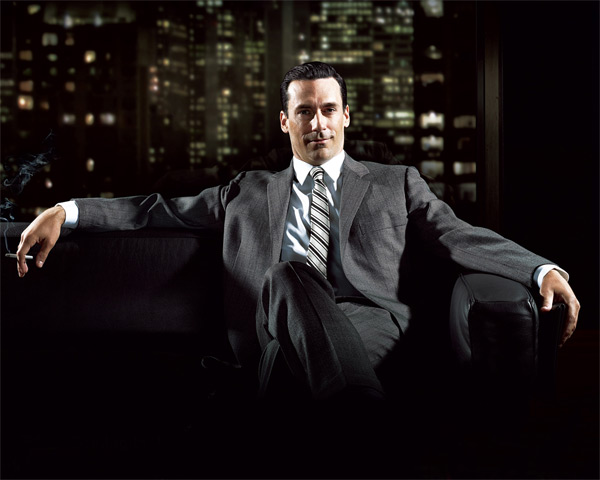The long-awaited snow has arrived. Just barely, but it counts.
(Music by the Jackson 5)

esteeming glory above peace
The long-awaited snow has arrived. Just barely, but it counts.
(Music by the Jackson 5)
You know those moments when you’re too tired to be productive, but too awake to sleep? I’ve developed a few systems to utilize those eras (also known as afternoons). One of my favorites is to put some Chinese websites’ lack of concern for copyright law to good use by catching up on TV shows that seem noteworthy. That was how I got addicted to Lost and figured out enough Prison Break to appease my students. So, when I was sick a few weeks ago, it started a concentration binge that let me blow through almost three seasons of TV in as many weeks. This time, I took recommendations from blogger friends—primarily Heather—to focus on Mad Men.

If I weren’t already sick, I think Mad Men would have done it.
You weren’t expecting that, I’d assume. Let’s talk about what most people say:
We could discuss finer points of the show for a good long while, but others have been quite effective in this approach. So allow me to revert to my tried and true method of discussion: broad generalizations.
Mad Men is about one thing: escapism.
We’re working on two levels here. First, escapism is the driving force behind every character and most plot advances. Don is scary good at it; Pete is painfully ineffective. Peggy runs from obvious goblins; Betty’s have yet to be unmasked (and dumping the psychiatrist was terribly unfair). Whether living behind a mask (everyone except Roger) or flaunting your disregard for propriety (um, Roger), everyone scurries about trying to hide their tragic flaw only to collapse comfortably back into its clutches at the first sign of trouble.
Of course, the primary escape is sex. Who in the show doesn’t have some sort of sexual struggle? I mean, even Glenn has some weird surrogate Oedipus complex. I’m tempted to say this is just to keep people watching, but not having lived through the ‘50s or ‘60’s, I can’t really speak with authority. Still, it’s like watching a kung-fu movie: there is nothing even remotely realistic in the frequency and extremity of the action, but it just keeps scaling up.
So, why the fascination with the show? Because we’re all there.

Personally, I’m Don. Yes, I’m sure everyone says that. Hear me out. I’ve never assumed a false identity, cheated on my wife or ignored my brother into suicide, but I’m always controlling others’ perceptions. I can’t stop. Ever. I’m totally able to be separate people—and switch between them convincingly and almost instantly. Of course, some distance and locked doors help. And then the occasional three-week binge that terrifies everyone too much to ask what it was. I understand people—I have to. My mistakes are almost never open, and those who know about them usually respect the façade enough to keep from blurting it out. People brought face to face with my ugliness tend to downplay it out of respect, genuine love or fear of the mystery.
Maybe you’re more the ‘quiet desperation’ Betty. Possibly, with the Henry Francis release valve or, more realistically, without it (or the tastelessly gratuitous bar fling). Correctly or not, you think the world hates you, so you hate it back. And watch it pass you by. Smile when you have to.
Need recognition, anyone? Pete’s there with you. Try to fit the socially-prescribed mold? You and Joan connect. Desperate to be progressive and in-touch? Better start growing a beard (probably a soul patch), because you’re Paul. Wanting to break out but disappointed whenever you do? I think Peggy has your line.
Give me one truly satisfied (semi-meaningful) character in the show. Even Sally only gets enough attention to allow her vices to manifest themselves. Have you seen the opening? A dude falling helplessly, but finally presented as sprawling confidently in his chair. Nihilism, cynicism and pragmatism stew under surfaces thin enough to allow everyone to recognize a problem but present enough to keep them from discussing it.
Which brings us to the second way the show is about escape. We watch it to escape. No one (in the show or in reality) is really happy to be hiding. While confession is rare, admission upon confrontation is somehow freeing. So we admit our faults by identifying them as we watch. This is true personally and corporately. The corporate evils (sexism, racism) and the personal ones (greed, lust) the show highlights are ours. Viewing such evil allows us to identify and vilify it. Yet that third-party identification doesn’t actually condemn us directly. We admit it, but escape any consequences. In fact, we cheer for Don when he pulls off his trysts and secretly love the hedonistic office parties while shaking our heads in disgust. And if you think your disgust is genuine, explain why you’re still watching. 1
So allow me to add my voice once again to a growing chorus calling for true confession and transparency. I’ve advocated this to friends for some time. Admitting wrong and accepting the consequences or forgiveness that follows is absolutely necessary.

And hard.
At least, that’s what I’m saying now.
I know I’ve not been writing all that much, but if you’ve noticed the reading list on the sidebar,1 you know I’ve been reading.
My news source of choice is BBC. It’s great to hear about what’s happening in the world with minimal opinionizing, and I find they do a great job of focusing on worthwhile information while ignoring junk stories. And they have a configurable website. What’s not to love?
No, the real problem comes with people who give their opinion. You know—everyone.
Granted, my primary reading of late (Slate, Mother Jones, GOOD, AtlanticWire) is often going to clash with my conservative-leaning values. I knew that going in.2 Still, I love me some SCREED and Political Gabfest. And they’ve figured out things like RSS. Mostly.3
What I don’t love is the false sense of truth. And it keeps popping up in obvious ways. (These examples come from my last few days’ reading. And in every case, I agree with the basic idea the author is unsuccessfully attempting to promulgate.)
Don’t worry, I won’t go on—because these crude attempts at “smart, fearless journalism” aren’t actually the point.
See, the title isn’t about them. It’s about me.
I’m actually concerned because I can’t let these things go. When I read flagrant stupidity, I get all enraged and lambast them for hours in very realistically-imagined emails. Sometimes, I even write less-inflamed comments. And, of course, I don’t leave the offending articles sitting open on my computer, lest Binbin be poisoned by them.
I’ve always wanted to be a change-maker. The potential for change is what attracts me toward law, management and public policy. I’m a tweaker. Necessary improvement is an obsession-inducing elixir. I’m getting jaded. Futility shuts me down like a direct lightning strike on a fusebox. Seeing exactly how broken our change-inducing systems are, therefore, presents a nasty conundrum: it first feeds the urge to dig in, then leaves an aftertaste so nasty I swear off the possibility of allowing my name to be in any way associated with it.
Maybe it’s a good thing I’m teaching English in China without regular internet access, not hobnobbing with power-players in my final year of law school.
It’s nice to finish a busy week—not only because you are finished, but also because you have that feeling of satisfaction and accomplishment.
(Music by U2)
[audio: http://www.grantedglory.com/happydance/hd1_20091107.mp3]I’m a night person. But even night people benefit from a little sleep.
(Music by Sara Groves)
[audio: http://www.grantedglory.com/happydance/hd1_20091103.mp3]